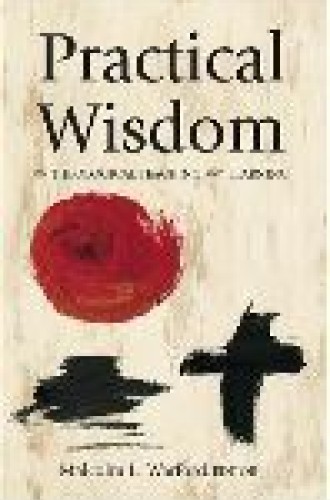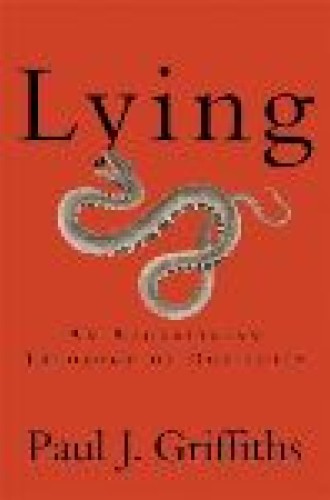Features
Virtual seminary: Experiments in video learning
For people unable to attend seminary, seminary can come to them, thanks to a new projectfrom Wesley Theological Seminary in Washington, D.C. The Wesley Ministry Network (WMN) enables people to sit in on the seminary lecture hall (via DVD), chat with other students and even the professor (over the Internet), and read the books their ministers had to go to seminary to learn about (see www.WesleyMinistryNetwork.com).
Teaching moments: Signs of grace
As part of a course on preaching that I took in my middler year at divinity school, I preached, and then submitted as a written text, what I thought was a good sermon. My professor thought my delivery was fine, and that the sermon showed potential. But his written comment stung: “Your stories and images are all of sin and its effects. Search for ways to convey signs of grace.”
Teaching moments: Heart of integrity
My tradition of origin said, “Find a teacher.” My first teachers, of course, were my parents, especially my father, who taught me to paint a room, saw a board, read poetry during thunderstorms, climb tall logs in the playground and catch fish. When I was in about the fifth grade the rabbi’s wife, who was my Hebrew teacher, invited me to her home and was the first person ever to serve me coffee.
Teaching moments: Cultural critic
For a generation of students at the Divinity School of the University of Chicago, Langdon Gilkey reflected with wisdom and grace on contemporary events in light of Christian faith, and he reflected on Christian faith in light of contemporary events. His death in November left the theological world the poorer.
Teaching moments: Hard truths
Whatever you do, for God’s sake don’t ask a question in class, that really makes Holmer mad,” said the older, wiser graduate student. This was my only preparation for entering Paul Holmer’s legendary class on Søren Kierkegaard at Yale Divinity School.
Sure enough, at the end of the first session, after a wonderful lecture on SK’s early years, giving the impression that he actually knew Kierkegaard from his days as a student in Minnesota, Holmer looked out at the class and asked, “Questions?”
Teaching moments: Attentive to the text
Sometime in the middle of my second year at New York’s Union Seminary, I made an appointment to consult with J. Louis Martyn about my prospects for graduate work in New Testament. I gathered together my undergraduate transcript, a list of courses I had taken at Union, copies of my seminary papers in biblical studies, and all the courage I could muster. At the agreed-upon hour, I arrived at his study, presented my case, and put forward the anxious question, “In your judgment, do I have the credentials and the abilities for scholarly work in New Testament?”
Teaching moments: Energetic listening
When I arrived at Yale more than 30 years ago to do graduate work in theology, I soon heard other students urging that I take a course with David Kelsey. Even as an undergraduate I had already learned an important lesson: to get the best education, don’t pay much attention to the topics of the courses; find out who the good teachers are and take whatever they happen to be teaching. So I soon signed up for a Kelsey seminar.
Karmic event: Buddhists and the tsunami
When disaster strikes, people turn to religion to help them answer two questions: Why did this happen? and What should we do about it? Call the first the meaning question and the second the action question. In the aftermath of the tsunami, which struck several predominantly Buddhist lands, one could see Buddists answering these questions in distinctive ways—though not necessarily ways that are entirely incongruent with Christianity.
Invisible wounds: For veterans, the war goes on
We hear about the U.S troops killed in Iraq, and we sometimes see their faces on the TV screen or staring out at us from the newspaper. The number of dead stands at about 1,442. There is a second statistic: 10,770 troops have been injured. For many of them, their bodies are terribly damaged and disfigured, and they will never be the same.
Supporting parents: A pro-lifer's critique of Bush
When my son David was born in 1967, fathers were not allowed in the delivery room. So I posted myself outside the delivery-room door and prayed. My wife, Dot, had had German measles (rubella) in the early months of her pregnancy. She was a pediatrics nurse, so she and I were aware of the damage that German measles could cause to the developing fetus. When the pediatrician came out, he told me that David had heart problems and solid cataracts in both eyes. Later we learned he had brain damage.
Class issues: An extracurricular education
At the opening gathering during my first year at Yale Divinity School, the new students met in the beautiful chapel, with its tall ceilings and clear congregational-style windows. Someone smartly bearded told us how lucky we were to be there. Meanwhile, in the old refectory with its paintings of various dignitaries on the walls, the university’s unionized workers were gearing up for yet another contract fight.
Kids with cameras
Zana Briski is a New York photojournalist who went to India in 1995 to document the plight of women in a patriarchal society. In 1998 she encountered the prostitutes working in the red light district of Calcutta. She moved in with them and got to know their routines.








